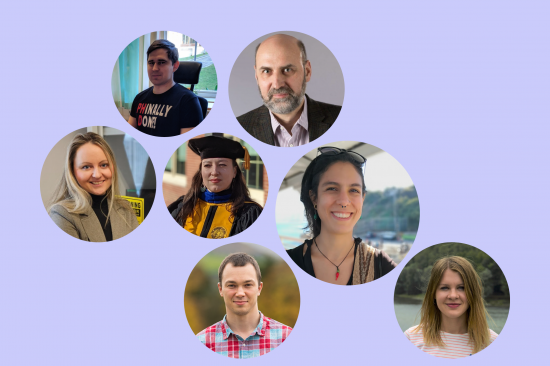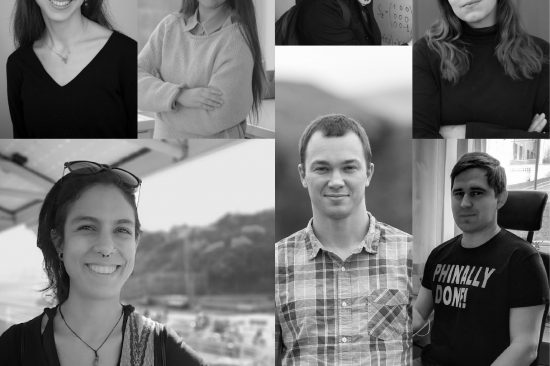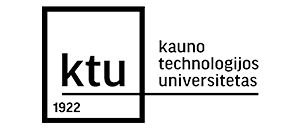Philantropic MJJ fund allocated EUR 106,000 to provide financial support to talented students who want to build the future of Lithuania. This year, seven students have been awarded grants to master’s study programmes at the world’s best universities.
DATE: 2021.07.28
MJJ Foundation is pleased to publish Knowledge Grant winners’ stories. The foundation believes in the empowerment of Lithuania’s young people and wants to encourage them. Indeed, knowledge these young people bring home will contribute to an innovative, healthy, sustainable Lithuania. During this scholarship, these talented students will share their knowledge in articles and video blogs. Let’s create the future of Lithuania together!
- Augustė Dudutytei received Knowledge Grant for a one-year Master’s program in Inequality and Social Sciences at the London School of Economics. Augustė, who is currently working as the Advocacy and Communication Manager of Vilnius Archdiocese Carite, is involved in the study of social exclusion. Last year, VA Caritas coordinated the integration of fourteen refugee families in Lithuania in the integration program for foreigners. The paradigm sees poverty as the result of individual choices and does not recognize the influence of structural factors, so neoliberalist solutions are not suitable for the less privileged. My ambition is to examine alternative models of social mobility that would allow a young person to fulfill his potential, considering the factors affecting him/her (such as: social status, gender, religion, ethnicity, disability, sexual orientation, etc.). I am convinced that the Master of Inequalities and Social Sciences will supplement my practical and academic experience gained so far and strengthen my efforts to become a professional social exclusion researcher-practitioner,” says Augustė.
- Martynas Venckui is laureate for a one-year Master’s program in Health Data Analytics and Machine Learning at Imperial College London. As a medical student at Vilnius University, he achieved the highest results both in the academic and clinical environment. “The integration of computer science into medical practice allows us to effectively respond to existing and constantly emerging challenges in the healthcare system. However, while the amount of data generated in medicine has never been greater, only a small fraction of it is used to develop sustainable and life-saving algorithms. In order to unlock this potential, health systems need not only experts who bring artificial intelligence to medicine with technical knowledge, but also medical professionals who can accelerate this integration by bringing medicine itself closer to artificial intelligence tools. Guided by this goal, I am happy to have the opportunity to study in a world-class education in the fields of technology and medicine”, says Martynas. During his studies, Martynas will seek to understand and master how patient electronic records, visual information, and genetic data could be used to create data-based solutions and models that would reduce the burden of disease, optimize work in hospitals, and personalize patient care.
- Paulina Aliukonytei will integrate a one-year master’s degree in mathematical statistics at the Faculty of Mathematics of the University of Cambridge. She chose this mathematical statistics course, realizing that many Lithuanian startups and companies increasingly need people competent to solve problems from the ground up, and such tasks often require a deep understanding of models, not only their practical use, which is too common in engineering courses. “My chosen course is specific in its theoretical nature, which is an integral part of understanding how models work from a formal statistical approach. This course is a great start for a future researcher in all fields that require statistics and artificial intelligence, fields where Lithuanian start-ups are taking their first steps and where the essence is intellectual property in the sphere of patentable models ” shares Paulina.
- Ugnė Dirdaitei will start a two-year master’s program in biological sciences at Wageningen University. “I aim to study biorefining, waste engineering, which is one of the more effective ways to reduce CO2, water footprint. As a result, it is necessary to learn innovations from foreign experts, to increase the circle of knowledge, so that later foreign investments can be attracted to Lithuania. Wageningen prepares experts practically because it has all the necessary equipment and cooperates with well-known companies. After my studies there, I intend to help KTU University to strengthen the Industrial Biotechnology program. I intend also to write an EU support project for the establishment of a biorefining company and to bring to Lithuania the latest technological know-how that allows reorienting polluting production to sustainable production, which is very important, because in 2030 The EU will need to reduce CO2 emissions,” shares Ugnė.
- Ingrida Kalinauskienei received a grant for a two-year Executive Master program in public administration at the Hertie School in Berlin, one of the most important digital management schools in the European Union. “It is clear that in order to achieve long-term anti-corruption changes, cutting-edge knowledge, strong leadership skills and an international perspective are needed. I am sure that the Executive MPA program, with its theoretical and practical knowledge, methodological tools and networking opportunities, will contribute to my better understanding of how to build effective and transparent institutions and ensure more informed decision-making. This, in turn, will undoubtedly help me grow as a leader, and I will be able to use the acquired knowledge and skills in the activities of Lithuanian chapter of Transparency International (TILS)” – Ingrida Kalinauskienė shared her motivation.
- Eleonora Lekavičiūtei will enter Master’s studies in Carbon Management at the University of Edinburgh, one of the first and most prestigious program of its kind in the world. Diverse experiences, at Brown University in the USA, with Build Lithuania program and two years in Latin America, have helped Eleonora to develop a visionary approach to solving the problem of climate change. In addition, the support from the MJJ Foundation will enable her to acquire the necessary intellectual and practical tools during his studies in Carbon Management. The aim of the studies is to provide specialized scientific knowledge and practical skills to prevent climate change and adapt to its effects, in order to achieve a sustainable and low-carbon neutral economy”, says Eleonora. “I see a lot of potential for Lithuania to be a leader in this field – not only because of the size of the country, which is conducive to rapid changes, but also because of the recently emerging identity of Lithuania as a center of innovation, and nature as one of the most important sources of national pride. I believe that a closer relationship between innovation and a clearer understanding of future needs in relation to climate change could be a successful combination for Lithuania’s growth.” shares Eleonora.
- Miglė Petrauskaitei is Knowledge grant laureate for a 2-year master’s degree in international politics and development at Georgetown University. This year, she is the only representative of the Baltic countries invited to study in this university program. Miglė will dive into economic development and the economic and social prerequisites necessary for the creation of innovations and her goal is to bring these experiences to Lithuania. “I believe that the vigorous system of social and financial innovations will become a key factor promoting the progress of the Lithuanian economy. I see a lot of sense in this, because purposefully applied innovations would directly help to fight against the country’s entrenched challenges, such as a high level of social exclusion, unsustainable financing mechanisms for public services, weak involvement of NGOs in solving the problems of society. Innovation in the implementation of social policy in Lithuania is important: my colleague and I submitted a proposal to the Government to consider the social impact bond model as an alternative financing mechanism for public services, which is rapidly gaining popularity in Western economies. In March, this model was included in the Government’s plan of measures, and in April it was decided that Lithuania would become the first Baltic country to pilot this model.” shares Miglė Petrauskaitė.


















